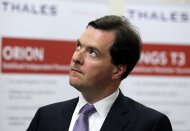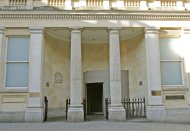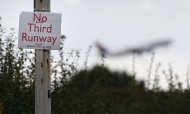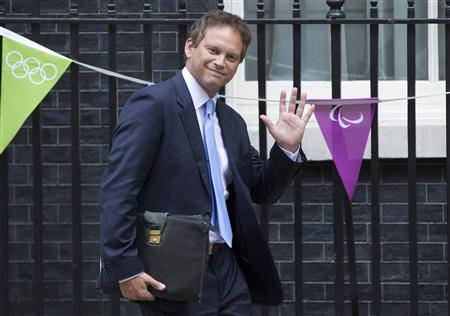Reporters without Borders have announced the launch of a "virtual
shelter" to allow people to share banned and censored materials, at
www.wefightcensorship.org
Ed Geraghty, Pirate Party UK International affairs spokesperson, said
"We welcome the news, it's just a shame that this sort of thing is
still needed"
"Even in western democracies we're seeing a slide towards censorship;
whether it's "morality filters" being applied to our internet
connections, newspapers scared of publishing cartoons of the prophet
Mohammed, increasingly fatuous super-injunctions or the embarrassment
that was the Twitter Joke Trial"
"And of course, in oppressive regimes things are even worse. So it's
good to see the weight of Reporters Behind Borders behind the
initiative. It's a welcome addition to established sites such as
WikiLeaks and Cryptome.org"
"We also welcome the "hackathon" approach - transparency and openness
are a real benefit to security, something our government might
consider when it's looking to set up its own secure systems"
PoliticsUK, as an organisation, does not support or endorse any views on this blog. www.facebook.com/politicsuk
Tuesday, 11 September 2012
Pirate Party Press Release: launch of a "virtual shelter" to allow people to share banned and censored materials
Monday, 10 September 2012
Workers 'unaware' of pension change
More than half of workers are not aware of a plan to automatically enrol employees into a pension scheme, just weeks before the reform comes into effect, according to new research.
A survey of 5,200 adults by finance firm Scottish Widows found that 52% were "completely unaware" that workers will automatically join a company scheme from October 1.
The findings were "alarming", with lower paid staff less likely to know about auto-enrolment, said the report.
Lynn Graves of Scottish Widows said: "With just three weeks to go until auto-enrolment comes into force, it is shocking that there remains such a gap in awareness, and that the media has had to step in to play a pivotal role in educating people about these changes."
Almost two thirds of those questioned said they only heard about the pension change through the media.
A Department for Work and Pensions spokesman: "We will boost awareness of automatic enrolment with our national campaign which includes television advertising from later this month.
"While the launch is in October, we are bringing the reforms in gradually over the next five years, so it's understandable that some people will not be aware of the changes. The Pensions Regulator is working with employers to make sure they have the information they need to explain the benefits of workplace pensions to their staff."
Taliban: 'Prince Harry Is High Value Target'
The Taliban have described Prince Harry as "a high value target", saying they will "make their best efforts to arrest or kill" him.
The 27-year-old Army captain arrived in Afghanistan for his second tour of duty on Friday.
Now a fully-qualified Apache helicopter pilot, Captain Wales, as he is known in the Army, will be flying in support of coalition forces on the ground.
Taliban spokesman Zabiullah Mujahid said on Sunday: "Whoever is fighting in our country alongside the US is our enemy and we will attack him.
"Prince Harry came to Afghanistan and he is a high value target for us. We will try to arrest him.
"Because he is an Apache helicopter pilot, he will target us more. If we are not able to arrest him we will target him.
"The Taliban will make their best efforts to arrest or kill Prince Harry," he added.
It is four-and-a-half years since the Prince's first tour of duty, which had to be cut short when foreign media blew his cover.
He was due to complete training courses this week in first aid, shooting and improvised explosive device (IED) awareness, before starting his Apache-specific preparation.
During this phase of training, which starts on Monday, he will climb into the cockpit and begin to familiarise himself with the way the deadly aircraft is configured for the country.
He will not be sent out to take on the Taliban for at least another seven days.
Sunday, 9 September 2012
Gruffalo Author Appeals Against Library Cuts
Gruffalo author Julia Donaldson has urged the new Culture Secretary to "show some leadership" and prevent cuts to libraries.
The writer, who was named Children's Laureate last year, told Maria Miller that cutting library budgets was "a false economy".
Ms Donaldson will embark on a tour on Monday taking in 35 libraries across England, Wales and Scotland over six weeks to publicise her campaign.
In an open later to Ms Miller, who replaced Jeremy Hunt in the recent Cabinet reshuffle, Ms Donaldson said: "I'm also hoping that the tour will draw attention to the erosion of the library service which is happening in so many local authorities, and to the current Government's utter refusal to intervene or to provide any leadership."
Ms Donaldson, the best-selling author of more than 150 books including What the Ladybird Heard and Zog, said nearly 250 libraries were currently either under threat of closure or else have been closed or left council control since April.
She also said staff numbers had been cut along with the number of books available.
She added: "Children's use of those libraries which are still open has actually been rising over the last seven years, so please don't deprive them of the storytelling sessions, the homework clubs, the expert librarians and, above all, of the free books.
"Will you consider ring-fencing council spending on children's library services? Will you discuss with your colleagues the possibility of using some of the education budget for this purpose?
"Above all, will you (unlike your predecessor) respond to concerns and complaints, and show some leadership for our young readers?"
HMS Ark Royal to be sold for scrap
Former Navy flagship HMS Ark Royal will be sold on as scrap metal for £3 million as part of a move that the Ministry of Defence has described as "difficult but necessary".
An announcement in Parliament is expected to reveal the details of the deal after the vessel was decommissioned in 2010 five years ahead of its expected sell-by date.
The decision comes following a bidding process which included proposals to turn the 22,000-ton ship into a helipad in the Thames, a museum, a hotel, a casino or a diving wreck off the South coast.
Last year HMS Invincible was also sold to a Turkish scrap metal firm as part of the MoD's drive to get its finances in order.
But HMS Illustrious, commissioned in June 1982 just days after the Falklands War, is expected to be preserved after completing active service in 2014, according to The Sun on Sunday.
A MoD spokesman said: "HMS Ark Royal was decommissioned in 2010 after three decades of service and an announcement on her future will be made to Parliament on Monday.
"Retiring her five years earlier than planned was a difficult but necessary decision to help address the multi-billion pound Defence deficit and deliver a balanced MoD budget. The new, much larger Queen Elizabeth aircraft carriers will start to enter service in 2017."
Ark Royal is seen as a symbol of the former might and current woes of the Royal Navy, being the fifth vessel to carry the name of the flagship which saw off the Spanish Armada in 1588.
Known as the Mighty Ark, the light aircraft carrier saw action in the Adriatic during the Bosnian War in 1993 before being sent to lead the British fleet during the invasion of Iraq a decade later.
Following the Defence and Security Review's decision to scupper the vessel and ground the Navy's Harrier jump jet fleet 18 months ago, the Royal Ark has been awaiting its fate in Portsmouth harbour.
Balls Tells Cable: Let's Fix Economy Together
Shadow chancellor Ed Balls has appealed to Business Secretary Vince Cable to work with Labour on a Plan B for the economy.
In an open letter, published in the Sunday Mirror, Mr Balls suggests the two should work together to bring Britain out of recession.
He says he wants to join forces with "sensible people in the Government" - singling out the senior Liberal Democrat and giving renewed backing to the "mansion tax" championed by Mr Cable.
It comes a day after opposition leader Ed Miliband said he was in regular text message contact with the Business Secretary and was "open for business" for joint working in the future.
On Saturday, Deputy Prime Minister Nick Clegg dismissed claims that his party colleague, tipped by some to lead the party into the 2015 election, was being courted by Labour as "ridiculous" and "schoolboy politics".
Mr Balls, in his letter, writes: "No matter how bad things get, David Cameron, George Osborne and Nick Clegg are desperate to cling on to their failing economic plan - putting their political pride above the long-term interests of the country.
"But the country cannot afford to wait until the next election before we get a change of course. Because the longer ministers refuse to act, the more long-term damage will be done to our economy.
"That's why I want to work with other parties - including sensible people in the Government - on a new economic plan. In his heart of hearts ... Vince Cable must know that Plan A is not working.
"After all, before the last election, he warned - with Labour - that David Cameron and George Osborne's policies would backfire.
"And, sadly, our warnings came true. So let's work together on new ideas to create jobs and build our way out of recession."
Meanwhile, two new Conservative ministers who moved into Mr Cable's department in Mr Cameron's reshuffle have called for an end to the "politics of envy" that sought to tax wealth.
In what will be seen as a shot across the bows of Mr Cable, Michael Fallon told The Sunday Telegraph it was vital to "salute" wealth creation "and stop thinking of new ways to tax it".
Mr Fallon said he would champion the scrapping of up to 3,000 regulations, the complete sell-off of the Royal Mail and moves to make it easier to sack underperforming staff.
The installation of Mr Fallon and close George Osborne ally Matthew Hancock under Mr Cable was regarded as a bid to restrain Mr Cable, regarded by some Tories as being anti-business.
Mr Fallon denied that was the case, telling the paper: "I'm not there to keep an eye on Vince Cable, I'm there to keep both eyes on growth."
Parents urged to police internet
Parents should be the first to take responsibility for stopping their children looking at internet pornography, the new Culture Secretary has said.
Maria Miller said calls demanding internet companies block access to hardcore online porn as a default setting would be considered by the Government.
But she emphasised that "first and foremost" parents must ensure their children and using the internet safely.
"I think responsibility is very strongly with parents to make sure that they really understand how their children are using the internet...to make sure they are safe," the MP said.
In an interview with The Sunday Times, Mrs Miller said there could be a role for the government in giving advice to parents on devices such as parental blocks on their home computers and similar software, adding: "I think probably the awareness of those sorts of pieces of software you can buy or indeed what you can do is not as high as it needs to be."
A petition signed by more than 110,000 people calling for internet service providers be made to compulsorily block access to pornography on computers, mobile phones and tablets was handed to 10 Downing Street last week.
In June the Government launched a 10-week consultation asking parents and businesses for their views on the best way to shield children from internet pornography. The study is also looking at measures to protect children from other potentially harmful sites such as those which promote suicide, anorexia, gambling, self-harm and violence.
Parents are being asked for their views on three possible systems, including one where users have to "opt in" to see adult sites, and one in which customers are presented with an unavoidable choice about whether they want filters and blocks installed.
The third option would combine the two systems, enabling customers to block some content automatically and be given a choice to unblock them as they wish.
It comes after David Cameron said earlier this year that the Government needed to look at whether internet services or devices might come with a filter on as their default setting or have a combination of a filter and an "active choice" by the customer.
Friday, 7 September 2012
Osborne upbeat despite growth fears
George Osborne has insisted there are "positive signs" in the UK economy despite a think-tank drastically downgrading its growth forecast for Britain.
The Organisation for Economic Co-operation and Development (OECD) predicted a 0.7% fall this year, having previously expected a rise of 0.5%, and said the country will fail to pull out of its double-dip recession in the current quarter.
Despite the gloomy forecast, the Chancellor maintained that the economy was healing and insisted the Government will not change course on its economic programme in the face of Labour demands for action to stimulate growth.
His comments came after the European Central Bank (ECB) unveiled details of a new bond-buying plan aimed at easing the eurozone's debt crisis.
Mr Osborne told a CBI Scotland dinner in Glasgow: "The economic outlook remains uncertain but there are some positive signs. Our economy is healing - jobs are being created, manufacturing and exports have grown as a share of our economy, our trade with the emerging world is soaring, inflation is down, much of the necessary deleveraging in our banking system has been achieved, and the world is once again investing in Britain."
The senior Tory said that nobody was offering "a credible or convincing alternative economic strategy". He added: "We in Britain have to confront our problems head on, be honest about the scale of the challenge, and be consistent in our determination to succeed."
Mr Osborne's address followed news that the ECB is to buy up government bonds of eurozone countries to help bring down their borrowing rates. Yields on Spanish and Italian 10-year bonds dropped after the announcement, in a sign that it had restored confidence in some investors, while European stock markets surged.
The OECD, which had warned in its forecast that the eurozone crisis remained "the most important risk for the global economy", welcomed the announcement. It had earlier called for more policy action to instil confidence in the single currency.
The Paris-based organisation's latest forecast for the UK is significantly worse than the 0.5% expansion it predicted last year, when it slashed its forecast from growth of 1.8%. The UK is predicted to be the worst performing G7 nation apart from Italy in the year.
However, it warned that its forecast does not take into account the effects of the Olympics, which many expect to provide a boost to the economy through an increase in tourism and spending on the high street following TeamGB's success. The OECD predicted the UK economy will not return to growth until the final quarter of the year, when it will expand marginally.
Palace mulls Harry photos complaint
St James's Palace said it is still considering whether to make a formal complaint about The Sun's publication of nude photos of Prince Harry.
The palace confirmed its stance after the Press Complaints Commission (PCC) announced that it would be "inappropriate" to open an investigation into the matter.
The press watchdog revealed officials are in dialogue with Harry's representatives, but said any inquiry without consent could "pose an intrusion" in itself.
The Sun was the only British newspaper to defy a PCC advisory note not to publish the photos of Harry frolicking in the nude with an unnamed woman in Las Vegas. It came after the PCC warned that publication could breach the editor's code of practice on privacy grounds.
Asked whether they would, or would not, make a formal complaint to the PCC, a palace spokesman said: "We are still considering matters and will make a decision in our own time."
Commenting on their general position on the issue he said it had not changed since the pictures emerged and it was "down to editors to make a decision about what they chose to publish".
The PCC said in a statement it had received around 3,800 complaints about the publication of the photos. The statement continued: "The Commission is in continuing dialogue with Prince Harry's representatives but as yet has not received a formal complaint.
"The Commission would be best placed to understand these issues - including the circumstances in which the photographs were taken - with the formal involvement of Prince Harry's representatives. In addition, an investigation by the Commission, without consent, would have the potential itself to pose an intrusion."
The images led to global headlines after emerging on a celebrity gossip website last month. The Sun's front page image showed Harry holding his genitals and another inside showed him with his bottom exposed while apparently playing strip billiards with an unknown blonde.
A spokeswoman for News International, The Sun's publisher, did not issue a new statement, instead referring to the paper's editorial on the day it published the photos. The editorial read: "The photos have potential implications for the Prince's image representing Britain around the world. There are questions over his security during the Las Vegas holiday. Questions as to whether his position in the Army might be affected. Further, we believe Harry has compromised his own privacy."
Hero Dog Theo Honoured With 'Victoria Cross'
An Army explosives sniffer dog who died hours after his handler was killed in Afghanistan is to be given a posthumous award.
Lance Corporal Liam Tasker, 26, from The Royal Army Veterinary Corps, 1st Military Working Dog Regiment, was shot by insurgents on March 1 last year while on patrol in Helmand Province with his dog Theo, who died of a seizure shortly afterwards.
The pair, who were said to have been inseparable, detected a record 14 Taliban roadside bombs and weapons caches in five months and are believed to have saved countless lives.
Their role was to provide search and clearance support, uncovering hidden weapons, improvised explosive devices and bomb-making equipment.
Springer spaniel Theo is to be awarded the PDSA Dickin Medal, known as the animals' Victoria Cross, for his "heroic actions".
The award is said to be the highest accolade any animal can receive in recognition of devotion to duty in saving human life while serving in military conflict.
It was first instituted by the veterinary charity's founder, Maria Dickin, in 1943.
L/Cpl Tasker, from Tayport in Fife, was posthumously honoured with an MBE in September last year.
Theo made the most confirmed operational finds by any arms and explosives search dog in Afghanistan to date.
On one occasion, he is said to have discovered an underground tunnel leading to a room in which insurgents were suspected of making bombs and hiding from coalition forces.
Speaking after an inquest in Trowbridge, Wiltshire last year, L/Cpl Tasker's mother, Jane Duffy, said the fact her son and Theo had "worked together and died together" brought her some comfort from knowing they were "somewhere together now".
PDSA director general Jan McLoughlin said: "We are very proud to posthumously award Theo the PDSA Dickin Medal, the highest award any animal can receive for life-saving bravery in conflict.
"Theo's exceptional devotion to duty as a military working dog in Afghanistan saved countless human lives.
"The award of this medal, recognised worldwide as the animals' Victoria Cross, honours his service in life and his sacrifice in death.
"It serves as a very poignant reminder of the loyal companionship and dedication of man's best friend."
Schools alliance demands GCSE probe
Schools, academies and teaching unions have announced they have formed an alliance to demand an independent inquiry into the GCSE English grading fiasco.
The group said it has "lost confidence" in Ofqual and does not feel the exams regulator should lead an investigation into itself. It has also launched a petition calling for the issue to be debated in Parliament.
The action comes amid continuing concern that thousands of pupils were unfairly penalised by the altering of grade boundaries in GCSE English between January and June.
As the unprecedented alliance was announced, a survey found that many parents believe the Government should order an independent investigation.
The poll of 1,000 parents, commissioned by the Times Educational Supplement, found that almost half (48.9%) believed ministers should sanction an investigation immediately, while 26.2% were against it. The rest were unsure. Almost a third of parents (31%) were unhappy about the GCSE grading crisis, while 22.7% were happy. The remainder were not aware of the situation or neither unhappy or happy.
The alliance, which includes private and state school groups, said the decision to band together showed the "strength of feeling against a transparently unjust procedure that grades students inconsistently for the same exam".
They argue that the grading changes will have "massive implications" for schools and pupils, with students left in limbo over sixth form places, or at risk of losing out on apprenticeships. It could also damage students' university chances as many institutions ask for a C in GCSE English, regardless of A-level results.
Brian Lightman, general secretary of the Association of School and College Leaders (ASCL), said: "The row is essentially about fairness. It is wrong for pupils to be graded differently for the same exam. Schools have not complained about the results in science - which dropped nationally by an even larger amount than English - because that process was seen as fair and transparent."
The organisations joining the alliance are ASCL, the National Association of Head Teachers, the Headmasters' and Headmistresses Conference, the National Union of Teachers, the Girls' Schools Association, the Specialist Schools and Academies Trust, the Association of Directors of Children's Services, the Association of Teachers and Lecturers, the Academies Enterprise Trust, the Independent Academies Association, the National Association for the Teaching of English, and the Bradford Partnership.
An Ofqual spokeswoman said: "We want to fully understand the concerns being raised by teachers, head teachers and their organisations about GCSE English. That is why we have been working hard over the past few days to meet many of them, listen to their views and share evidence. Their views and evidence will inform our thinking and investigations as we continue our work."
Thursday, 6 September 2012
Cut in nurses’ bursaries is a disaster for students
Cut in nurses’ bursaries is a disaster for students
NUS-USI
President Adrianne Peltz has expressed disgust at the Health Minister’s
announcement today that nursing and midwifery bursaries will be
significantly cut for students
starting courses in the coming days. The Minister announced that annual
bursaries will be cut by almost 15% from £6055 to £5165 and the book
and uniform allowances will be scrapped for students commencing study
from 2012 and beyond.
President
of NUS-USI, Adrianne Peltz said: “This announcement is absolutely
catastrophic, and so is the timing of it. People are about to commence
their courses in the coming
days, and they now face this financial bodyblow. This announcement is a
disaster for nursing and midwifery students.
“Imagine
a wage cut of almost 15% and the impact that this would have on
people’s ability to make ends meet. This is what is happening as regards
every new nursing student
here. They will contribute so much to our heath service through the
massive number of hours they will work in our hospitals during their
work placements. This is essentially a massive wage cut for them.
“Also,
the fact that the Minister is abolishing the much valued book and
uniform allowance brings into even sharper focus the massive financial
pressure that new nursing
and midwifery students will now face.
“This
announcement will have thrown into turmoil the plans of students who
are starting nursing and midwifery courses in the next few days and
weeks, and now face this devastating
cut in their bursary.
“It
appears that the massive concerns of students have not been taken in to
account during the consultation process, as this cut and the abolition
of these allowances have
been implement in full, as stated in the consultation document.”
Tuesday, 4 September 2012
Methadone toddler: Agencies rapped
A toddler died from a methadone overdose after social workers failed to take him into care, a damning report has revealed.
Jayden Lee Green, who was just a month short of his second birthday, was found dead in his parents' bed after overdosing on the heroin substitute in August last year.
The toddler lived with his crack cocaine and heroin-addicted parents Jamie Green and Sonia Britton in a filthy flat in the St Georges area of Bristol.
A serious case review, commissioned by Bristol Safeguarding Children Board, found there was a lack of co-operation from Jayden Lee's parents with all involved in dealing with them. This included drug agencies, midwifery, housing, health visitors, social workers and there were also regular failures to keep appointments or be at home when visits were made.
The report stated: "What was lacking was the authoritative challenge to this lack of co-operation, there was a lack of enforcement of consequences. There was a lack of challenge by practitioners across the range of agencies."
The report, which referred to Jayden Lee as "Child K" throughout, continued: "The only way that Child K's death would definitely have been prevented was if he had been placed away from his parents. The opportunity to do this was lost due to the failure to follow through on the initiation of care proceedings. However, a better-planned and authoritative approach to the family may also have prevented his death."
Britton, 35, and Green, 33, were accused of killing their son by giving him the drug that they were both prescribed by doctors.
After a three-week trial at Bristol Crown Court, Green was convicted of manslaughter and causing cruelty to a child and jailed for nine years. The jury cleared Britton of manslaughter but convicted her of child cruelty and causing or allowing the death of a child. She was jailed for four years.
The serious case review said there were a number of "missed opportunities" for health and welfare professionals to "fully understand the circumstances" of Jayden Lee's home environment. During a press conference at the Council House in Bristol, some of the agencies involved with Jayden Lee expressed their regret at his death and said that lessons had been learnt.
Professor Ray Jones, chairman of Bristol Safeguarding Children Board, said: "The board accepts all of the recommendations in the report and we are giving particular attention to how we ensure all workers and agencies in contact with drug-misusing parents keep the safety and welfare of children as a major focus and seek to challenge parents about the potential implications of their drug misuse on their parenting."
©Press Association
©Press Association
Mayor: Government To 'Ditch' Heathrow Promise
London Mayor Boris Johnson has attacked the removal of Justine Greening as Transport Secretary, saying it meant the Government wanted to "ditch its promises" not to build a third runway at Heathrow.
Ms Greening lost her Transport brief in David Cameron's reshuffle . She will become the new International Development Secretary, taking over from Andrew Mitchell.
Her replacement in the role will be Patrick McLoughlin.
Ms Greening, whose Putney constituency lies under Heathrow flightpaths, has been a vociferous opponent of a third runway.
Mr Johnson was quick to criticise Ms Greening's demotion, claiming it showed that the Goverment was intent on the "simply mad" expansion at Heathrow.
He said he would fight any moves to build a new runway at the busy London terminal "all the way" and accused ministers of failing to be straight with Londoners.
"There can be only one reason to move her - and that is to expand Heathrow airport," Mr Johnson said in a statement.
"It is simply mad to build a new runway in the middle of west London. Nearly a third of the victims of aircraft noise in the whole of Europe live in the vicinity of Heathrow.
"Now it is clear that the Government wants to ditch its promises and send yet more planes over central London."
Downing Street insists the Government's position is unchanged since the coalition agreement of 2010, which committed ministers to scrapping extra runway plans drawn up under Labour.
But it has launched a consultation process on future airport capacity and Chancellor George Osborne sparked speculation over a possible U-turn by saying he believed more runway capacity was needed in the south-east of England and all options should be examined.
Mr Johnson urged Ms Greening's replacement to "look at all the options" available to address the growing need to expand the UK's aviation capacity.
"It is time for Patrick McLoughlin to look at all the options, including bolder solutions that would deliver massive benefits in jobs and growth," he said.
"And it is time for the Government to level with Londoners: are they in favour of a third runway at Heathrow or not?"
©Sky News
©Sky News
Britons take workplace religion fight to Europe rights court
British employers trample on religious freedoms by barring staff from wearing crosses at work, requiring them to provide sex advice to gays, or to preside at same-sex civil partnership ceremonies, four Christians told Europe's top rights court on Tuesday.
The cases provide a further test for the European court, which has in the past allowed member states considerable leeway concerning workplace tolerance of religious beliefs and symbols.
The plaintiffs, aged 51 to 61, told the European Court of Human Rights, based in the eastern French city of Strasbourg, that British law discriminated against them and failed to protect their religious freedom at the workplace.
A decision from the court, a body under the aegis of the Council of Europe, could take several months.
One plaintiff, Nadia Eweida, was sent home without pay from British Airways in 2006 for wearing a small silver cross around her neck that violated the company's dress code.
"Considering that we spend 80 percent of our time at work, what would be the value of a right that stops the minute one enters the workplace?" Eweida's lawyer, James Dingemans, argued.
Dingemans told the rights court his client worked alongside colleagues who were allowed to wear religious symbols such as the Sikh turban, the Muslim headscarf or the Jewish skullcap.
In a similar incident, nurse Shirley Chaplin was told by her employers to remove a crucifix around her neck as it could cause injury if a patient pulled at it.
Both of their cases were dismissed by British labour courts.
The European court was also asked to rule on two other cases focusing on the tasks employees were asked to carry out at work. Those claims had also been rejected by Britain's labour courts.
One plaintiff, Gary McFarlane, was dismissed from a national counselling service when his employers judged him unwilling to offer sex advice to homosexual couples. Another, Lilian Ladele, refused to officiate at civil partnership ceremonies for gay couples as part of her duties as a registrar.
A lawyer for the British government made a distinction between religious practices protected by the state and the display of personal convictions that can be regulated.
"The petitioners had the possibility of expressing their religious convictions outside of the professional sphere," lawyer James Eadie told the court.
The human rights court has in the past given considerable leeway to member states to regulate the wearing of religious dress and display religious symbols in public, especially in cases involving Islamic dress.
In one previous case, the court ruled that a French school could make its Muslim students remove their headscarves during sports classes for safety reasons. In another, it found that an Italian state school did not violate the rights to religious freedom or education by displaying crucifixes in classrooms.
Rulings by the human rights court cannot be appealed and signatories must comply or risk exclusion from the Council of Europe.
(Writing by Alexandria Sage; Editing by Jon Hemming)
©Reuters
©Reuters
Cabinet Reshuffle 2012
City minister Mark Hoban took up a new job in the work and pensions ministry, with Cameron drafting London Olympics organiser and former Goldman Sachs banker Paul Deighton into the Treasury as a minister responsible for economic delivery.
The Conservative leader also moved 72-year-old Justice Secretary Ken Clarke - a former chancellor - to a floating role with an economics brief. Clarke's move, in effect a demotion for one of the most outspoken pro-Europe Conservatives, was cheered by the euro sceptics.
"The end of the coalition would have been the ideal reshuffle but, compared to where I thought we would be today, we are in a very much stronger position; you can see the Conservative-ness of this government," said Conservative lawmaker Peter Bone.
"We've seen a tilting towards a more Conservative cabinet."
Lib Dem David Laws, another respected economic brain, was brought in to a ministerial job, with a junior portfolio at the education ministry alongside a roving economics remit.
The biggest promotion came for former Culture Secretary Jeremy Hunt, who took over what he called the "huge task" of selling controversial plans for reforms at the health ministry to a sceptical public and medical profession.
Cameron switched Justine Greening from transport to international development, removing her from the debate over whether the government should build a third runway at London's Heathrow airport, bitterly opposed by residents in her nearby parliamentary constituency.
The move reignited speculation that a third runway - which the coalition has pledged to reject - could be on the cards.
"There can be only one reason to move her, and that is to expand Heathrow airport. We will fight this all the way," said Mayor of London Boris Johnson, a popular Conservative tipped as a future replacement for Cameron.
More Violence Erupts On Streets Of Belfast
Petrol bombs, stones, bottles and fireworks have been hurled at police after "serious disorder" broke out in north Belfast for a second night.
Police fired six baton rounds and used four water cannon at rioters after they came under attack in the Carlisle Circus area of the city.
Sporadic outbreaks of violence erupted in lower Antrim Road and Denmark Street, where a van was hijacked and pushed towards police lines.
Nine officers were injured, with three requiring hospital treatment, according to the Northern Ireland Police Federation.
Federation chairman Terry Spence praised the "bravery and courage" of the frontline officers, saying it was "in stark contrast to that of the cowardly thugs responsible for trying to murder them".
In a statement, the Police Service of Northern Ireland (PSNI) said: "Police are dealing with serious disorder in Carlisle Circus area tonight (Monday).
"Motorists advised to avoid the Carlisle Circus area of Belfast due to ongoing disorder."
The latest disorder followed 47 officers being injured in an attack by Republicans and Loyalists during a Nationalist parade in the same area of the city on Sunday evening.
Four officers were taken to hospital while 43 others were treated for various minor injuries.
PSNI chief superintendent George Clarke said of Sunday night's violence: "I am both angry and sad that my officers have been subjected to such significant attack."
Police have urged community leaders to hold talks before more marches, part of the traditional parade season, take place in Belfast later this month.
George Osborne Booed At Paralympic Games
Chancellor George Osborne was booed when he took part in a Paralympic medal ceremony on Monday night.
The Tory cabinet minister appeared on the big screen before a medal presentation in front of an 80,000-strong crowd in the Olympic Stadium.
He laughed nervously as jeers rang out around the packed arena, as he prepared to give gold to Tunisia's T38 400m champion Mohamed Farhat Chida.
The Government has been under fire from disabled rights groups for awarding a contract to assess "fit for work" assessments to Paralympic sponsor Atos.
Rallies have been staged by activists in the past few days in protests at tests which have been described as "damaging and distressing".
A clip of the awkward moment quickly became a viral hit on social media, with George Osborne's name trending worldwide.
In contrast, former Labour Prime Minister and Chancellor Gordon Brown was enthusiastically cheered when he took part in a medal ceremony in the aquatic centre.
Saturday, 1 September 2012
Head Teachers In Legal Threat Over GCSE Marks
Head teachers threaten legal action after the exams regulator refuses to regrade GCSE papers.
The threat comes after watchdog Ofqual acknowledged that grade boundaries had been changed part way through the year but insists papers will not be remarked.
Unions say thousands of pupils missed out on the results they should have got.
In a statement, Russell Hobby, head of the National Association of Head Teachers said: "We will press for the report outcomes to be reconsidered and a re-grading to be carried out with the utmost urgency.
“To bring to an end the uncertainty over so many students' futures.
“There is still the potential for a legal challenge and we are working with other teaching unions to explore all options."
The Association of School and College Leaders (ASCL) said it was not "acceptable or practicable" to make the students resit exams.
It warned it could still begin a legal challenge against grade boundary changes on the grounds that it had disadvantaged certain groups of students.
Ofqual's report into the GCSE English crisis, released on Friday, found that January's GCSE English assessments were "graded generously" but the June boundaries were properly set and candidates' work properly graded.
But it said that it would not be "revisiting" the June grade boundaries because it would "contradict our responsibility to maintain standards over time and make sure results are comparable year-on-year".
Revisiting the January boundaries could mean lowering the grades of other students' assessments, which would lead to further concerns of unfairness.
Concerns mainly centre around pupils who were expected to get a C but instead got a D, and that this could affect their chances of getting into sixth-form college, or gaining an apprenticeship.
ASCL general secretary Brian Lightman said: "It is wholly unacceptable to leave the students and their teachers to pick up the pieces of a problem they did not cause.
“These changes implemented mid-year, without valid and reliable processes, must be reversed and arrangements put in place immediately to ensure that this does not happen again in future examination series.
"Many will already have left their schools and decisions about apprenticeships and further courses of study are being made now as term starts and enrolment in most schools and colleges is already under way."
Ofqual chief regulator Glenys Stacey said the regulator looked carefully at how GCSE English qualifications had been awarded this year.
"People were particularly concerned about the June grade boundaries. We have found that examiners acted properly, and set the boundaries using their best professional judgment, taking into account all of the evidence available to them."
The June boundaries have been properly set, and candidates' work properly graded, she added.
"The issue is not the June but the January boundaries. Again, examiners used their best judgment in setting these boundaries, but they had less data and information to work with."
Shadow education secretary Stephen Twigg said that Ofqual's statement did not address the situation and called for the Education Secretary to make a statement to MPs.
Overall, 719,000 submissions were made in the summer and 51,000 in January - about seven% of total entries.
:: The Department for Education said it would be discussing the situation with Ofqual in the coming days.
Subscribe to:
Comments (Atom)


















